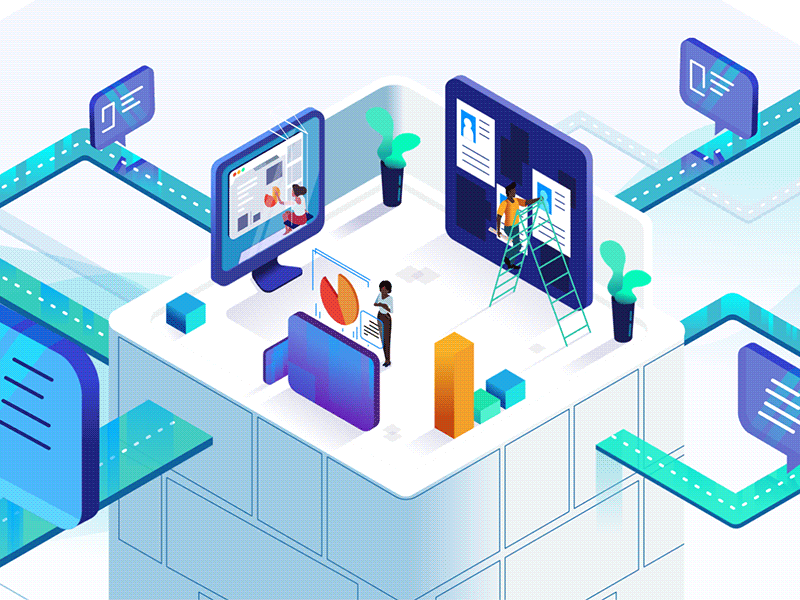Why Should You Take the "100 Days of Code" Challenge at Least Once in Your Life
Unlocking the superpower of consistency, dedication and upskilling
What is the 100 Days of Code Challenge?
The 100 Days of Code challenge is a self-directed commitment by developers to build strong, consistent coding habits. The challenge uses social responsibility, transparency and deep reflection to build healthy working habits. The learners and the developers document their journey and share their learnings in public during this challenge. This could be in the form of live projects, contributions, subjects studied and concepts learned, blogs or anything else!

Reasons to try the "100 Days of Code" Challenge
As a developer or someone who loves coding, you must be constantly looking for ways to improve your skills and stay motivated in a fast-paced industry. One of the most effective and popular ways to achieve this is to take the "100 Days of Code" challenge. This challenge encourages you to code for at least an hour every day for 100 consecutive days and offers several benefits that can make a big difference in your development journey. Here are a few reasons why every tech enthusiast should take on this challenge at least once in their career.
Continued Excellence
The goal of the 100 Days of Code challenge is consistency. By committing to coding every day, you'll form a daily habit that will strengthen your programming skills. This consistent practice will help you become more efficient, improve your problem-solving skills, and strengthen your knowledge of programming languages and tools. Over time, you'll notice that your code becomes cleaner, more efficient, and less error-prone.
Expand your skills
Mere repetition is not enough to become a better programmer; you also need to improve your skills. The challenge encourages the exploration of new technologies, frameworks, libraries and languages. Whether you're a front-end developer familiar with back-end technologies or a mobile app developer learning web development, you'll get a more complete picture of the software development environment.
Learn By Doing
Coding is hands-on and the best way to learn is by doing. The 100 Days of Code challenge challenges you to write code every day, making sure you're actively using your knowledge. This hands-on experience is invaluable for any developer, as it not only strengthens your existing skills but also helps you learn new concepts more effectively.
Enhance your level of confidence
As you complete each day of coding, you develop a sense of accomplishment and confidence in your abilities. Overcoming daily challenges and successfully building projects or solving problems increases your self-esteem as a developer. This new confidence inspires you to take on more ambitious projects and tackle difficult problems without hesitation.

Build your portfolio and work on various projects
One of the most tangible benefits of the 100 Days of Code challenge is the collection of projects created during the process. This portfolio of personal projects can be proof of your skills when applying for jobs or freelance opportunities. This demonstrates your commitment to continuous learning and improvement, making you more attractive to potential employers or clients.
Come across the communities
Participating in the challenge means joining a supportive and like-minded developer community. You can share your progress, ask for advice and collaborate with others on the same journey. This sense of community provides motivation and accountability because you're less likely to skip a day knowing others are watching your progress.
Adapting and getting familiar with changing technologies
In the fast-paced world of technology, adaptability is key. The 100 Days of Code challenge encourages you to keep up with the latest trends and technologies. This adaptability ensures that you remain relevant in the ever-changing technology industry.

How can you start the "100 Days of Code" Challenge
Taking the 100 Days of Code challenge can be a rewarding journey for anyone looking to improve their coding skills. Here are five easy steps to start this challenge:
Set clear goals
Begin by defining the goals of the challenge. What do you want to achieve in the next 100 days? Do you want to learn a specific programming language, build a portfolio of projects, or improve your problem-solving skills or learn Data structures and Algorithms? Clear goals give purpose and direction to your journey.
Choose study materials
Decide where and how you study. There are many online platforms, courses, tutorials and coding communities available. Choose resources that match your goals and learning style. Popular options include Codecademy, freeCodeCamp, Coursera, Udemy and many others. Make a list of courses or resources you plan to use.
Create a schedule
Stay on track by setting a daily or weekly schedule that works for you. Consistency is key to the 100 Days of Code challenge. Whether you set aside a certain amount of time each day or set aside certain days of the week to code, a schedule will help you create a habit.
Make a public commitment
Announce your commitment to the challenge on social media or join an online coding community. Sharing your journey with others not only keeps you accountable but also provides a support system. You can use the hashtag #100DaysOfCode to connect with other participants and share your progress. You can also join the communities to expand your network and get guidance from experienced individuals. WeMakeDevs is one of such visionary communities you must join!
Track your progress
Track your daily coding activity. You can track code and projects using a plain text document, your notebook, or online tools like GitHub. By recording your progress, you can see how far you've come and help you identify areas where you need more focus.
Remember, the 100 Days of Code challenge is about consistency and growth. Be patient with yourself, celebrate your achievements, and don't let failures discourage you. With these five steps and dedication to learning, you can meet the challenge and improve your coding skills.

My Experience with the "100 Days of Code" Challenge
On 27 June 2022, I was selected as a participant in the 100 Days of Code Challenge by the CodeIN Community! In this 100 Days of Code challenge by the CodeIN Community, the participants had to solve at least one question from any renowned coding platform daily, share their code on the CodingMinutes platform, post their daily progress on LinkedIn/Twitter and later, share their post link in the discord server for the evaluation.

I couldn't wait to kickstart my journey in tech in a completely different way and was truly excited to face the challenges and welcome the learnings throughout 100 Days!
I posted my 100 Days of Code journey on Twitter (now X). Participating in this challenge was one of the major reasons why I joined Twitter in the first place! Since I was a complete beginner with problem-solving and DSA back then, I started solving questions on Hackerrank and later on Leetcode. These questions were mainly based on the basic data structures, loops and conditionals to generate output, and problem-solving-based questions to build logic. I mainly used C++, Java and Python programming languages to solve the questions back then!

Major Challenges that I faced
Consistent Effort is a Consistent Challenge - Bill Walsh
Starting from the first day of my coding journey, it was never easy to stay consistent throughout those 100 days. The major hurdles I usually faced were as :
Lacking Guidance
In the initial phase of my journey, I was a complete newbie to communities, technologies and on-demand tech trends. I had zero connections or assistance from mentors, was very introverted and stayed confined in my comfort zone. Hence, I seemed to gain guidance from an experienced individual but couldn't due to my shortcomings, and this lack of knowledge and confidence often let me waste my time on multiple resources, around the questions and concepts that didn't contribute to my growth or coding skills.
Distractions
I saw many of my acquaintances dropping this challenge in between and getting distracted. I was often negatively influenced, demotivated and felt like giving up this challenge just like others did. But in these bizarre situations, self-motivation was the only savior I could ask for.
Time Management
As the days passed, it became difficult for me to manage my time between my college curriculum, classes and class tests, along with a few internship projects. I was later given the responsibility as a Core team member in a few societies and clubs of my college, hence, finding time to code daily and solve problems on HackerRank and LeetCode became very arduous and challenging.
Zero Patience
At the beginning of my coding journey, I was eager and excited. From day one, I wanted to write perfect code and execute complex projects at lightning speed. But that's not how coding works. I quickly learned that bugs, errors, and unexpected challenges are all part of the coding process. My initial impatience manifested as frustration, self-doubt, and a tendency to give up when things didn't go smoothly.
This was me in the midst of my journey of coding, handling college studies, clubs and council work, gym, projects, internships and generating errors daily :

Completed the Challenge!!
On the 100th day of my coding journey, emotions ran high as I sat before my computer screen. It was a moment I had been eagerly anticipating, a milestone that once seemed distant but was now right in front of me. As I looked at the screen, a wave of joy and tears of happiness washed over me.
The journey had been long, filled with challenges, late nights, and moments of self-doubt. There were days when I felt like giving up, when the complexities of coding seemed insurmountable. But I persisted. I embraced the process, learned from my mistakes, and celebrated every small victory along the way.
And now, here I was, on the 100th day, staring at a screen filled with lines of code and the projects I had completed. It was a testament to my determination, my growth, and my unwavering commitment to this journey.
The RESULT of this challenge
"The greatest glory in living lies not in never falling, but in rising every time we fall." - Nelson Mandela
I carried the joy and tears of that 100th day with me. They were a reminder that with patience, persistence, and unwavering belief in oneself, any goal, no matter how challenging, can be achieved.

My Learnings
The 100-day coding journey was more than just a challenge; it was a transformative experience that taught me invaluable lessons. While lectures and classes have their place in learning, this hands-on journey provided insights that no textbook can provide. Here are the main takeaways from my 100-day coding adventure:
There is always room to learn
One of the most profound realizations I had on this trip was that learning never stops. No matter how much you know or how skilled you are, there is always something new to discover in the vast world of coding. Whether it's a new programming language, cutting-edge technology or a new approach to problem-solving, the learning opportunities are endless. Embracing this idea has made me not only a better coder but also a more curious and open person.
A growth mindset always wins
The growth mindset popularized by psychologist Carol Dweck became the guiding principle of my 100 days of coding. Instead of looking at challenges and setbacks as setbacks, I learned to see them as opportunities for growth. Every bug I encountered, every line of code that didn't work, and every seemingly insurmountable project was an opportunity to develop my skills and flexibility. This change in mindset not only helped me overcome obstacles but also made the journey more enjoyable and rewarding.
Giving up is not an option
Coding can be incredibly frustrating at times. There were times when I felt stuck, unmotivated and tempted to give up. However, I quickly realized that if I wanted to succeed in this journey, giving up was not an option. Determination has become my closest ally. I learned to break down complex problems into smaller, manageable tasks and to keep moving forward even when progress seemed slow. This determination not only got me through the 100 days but also instilled a sense of resilience that I carry with me in all areas of my life.
Discipline of self-motivation
Although motivation is a powerful force, it can be fleeting. Relying on motivation alone to code for 100 days would have been unsustainable. Instead, I discovered the importance of discipline. By creating a daily routine and setting specific coding goals, I was able to make steady progress even on days when I wasn't feeling particularly motivated. Not only did this discipline help me reach the finish line, but it also taught me the value of consistency in achieving long-term goals.
Believe in yourself
Perhaps the most important lesson I learned from this trip was the importance of self-confidence. Doubt and self-criticism can be paralyzing, especially in a demanding field like coding. However, I have learned that trusting your abilities and believing in your ability to learn and grow is the key to overcoming challenges. This confidence not only increased my determination but allowed me to approach coding tasks with more vigor and creativity.
Patience
I started with zero patience but ended with a newfound appreciation for the art of coding and the rewards of persistence. Patience taught me that growth takes time, that errors are stepping stones to success, and that the journey is as important as the destination. So, if you find yourself lacking patience in your coding journey, remember that it's a skill you can develop—one bug, one line of code, and one day at a time.

Additional Rewards
I was delighted to know that the consistency and efforts were appreciated by the community. It wasn't easy, but I was truly satisfied and happy that I completed my first ever 100 days of code challenge.
Also received a cute token of appreciation for getting shortlisted as the "Top Performer of the 100 Days of Code Challenge" By CodeIN Community.
Conclusion
The 100 Days of Code challenge is a transformative experience for learners. It increases discipline, improves your skills, boosts your confidence and builds a strong portfolio. In addition, it promotes a sense of community and responsibility and connects you with other developers around the world. So whether you are a seasoned professional or just starting your coding journey, take up this challenge at least once in your life. The skills, knowledge and personal development you gain from this will undoubtedly advance your career and make you a better and more skilled developer. Get ready to travel and see your coding skills reach new heights.
Thanks for reading! I hope you enjoyed this blog.

Have you tried this challenge yet? Share your experience with us in the comments : )
